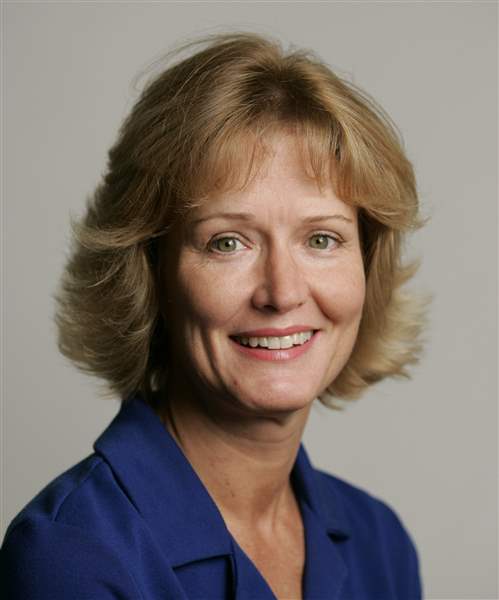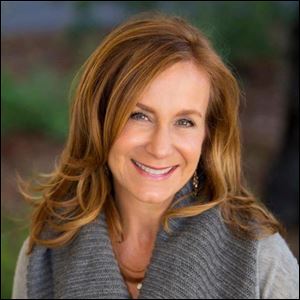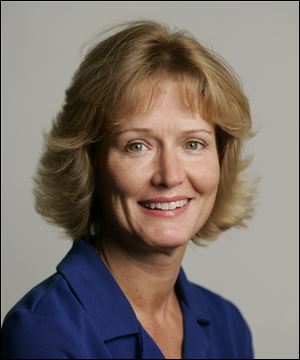
Mom turns filmmaker to get education system to re-examine itself
8/10/2013
Marilou Johanek.
Morrison

Abeles.
The countdown has begun. School starts in a week or two in most Ohio districts. School supplies are flying off store shelves. Educators are in full-preparation mode with student schedules and orientations.
But the new school year approaches with familiar apprehension. It portends another race against the clock for parents, teachers, and especially students. For nine months, they inhabit a pressure-cooker universe packed with deadlines, practices, extracurricular activities, endless homework, tests, and little sleep.
It’s a grueling marathon that kids endure daily to make the grade, get into a good college, achieve what our culture defines as success. Far from being a memorable learning experience, school is a grind.

Marilou Johanek.
That reality is starkly depicted in a film called Race to Nowhere. The documentary should be mandatory viewing for every parent, student, and educator.
At racetonowhere.com, a summary of the film says: “It reveals an education system in which cheating has become commonplace; students have become disengaged; stress-related illness, depression, and burnout are rampant, and young people arrive at college and the workplace unprepared and uninspired.”
The film is an eye-opener for parents who think they’re helping their kids by pushing them relentlessly to do more, be more. Students candidly admit they’re nervous wrecks who absorb only what they have to regurgitate.
As long as test scores are high, who cares that kids aren’t learning a thing? They go to college looking great on paper, but require remedial courses. They graduate into the marketplace able to follow instructions, but unable to think for themselves.
The system failed them, said mom-turned-filmmaker Vicki Abeles. She is the producer and co-director of Race to Nowhere. She came to a gradual awareness of how wrong the education status quo is by watching the struggles of her three children, particularly a middle-school daughter.
“Something didn’t feel right, with the late-night homework at the expense of sleep, the emphasis on testing, the coverage on content rather than learning,” she told me.
As the stress and academic burnout took a toll on her family, Ms. Abeles, a lawyer, became an advocate of the health and well-being of children in school. She found the problem of kids who are quietly coping with intense demands — often through performance-enhancing drugs — more widespread than she ever expected.
“I personally felt that it was important to give students and teachers a voice, a vehicle for sharing their stories,” she said.
What started out as an 18-minute cut of a film that she put together for a local event turned into a 90-minute-long feature film about school-age pain and promise.It has been shown nationwide and internationally in thousands of schools, universities, and other venues.
“We’ve reached a really wide audience [a cumulative count of more than a million people], but we’ve only scratched the surface,” Ms. Abeles said. “My continuing hope is to create the determination to reclaim a healthy childhood and inspire a new vision for education.”
She was eight months into researching issues and starting production on Race to Nowhere when a 13-year-old girl in her community took her life after she was devastated by a poor grade on a math test. The tragedy fueled Ms. Abeles’ commitment to change what she calls today’s education narrative.
“There’s one kind that goes we’re falling behind, and in order to remain competitive kids need to jump through more hoops,” she said. “Just because our kids are facing a more competitive world and because technology has made it possible for all of us to work 24 hours a day, that does not mean that it is the right thing for adolescents, whose brains and bodies are still developing, to work the number of hours that we’re asking them to.”
Race to Nowhere struck a cultural nerve. It launched a grass-roots campaign to raise alarm about the human impact of a quantity-driven, test-centered approach to education. It’s already influenced changes in dozens of school districts about homework policies and practices, later start times for schools, and limited high school advanced-placement courses.
Watch the film. Nobody wants to get off the treadmill first, but for the sake of our children it’s time we start a conversation about rectifying the damage wrought by 10 years of school “reform.”
By all means, include the backpack bunch. Getting school supplies and figuring out schedules offers a perfect opportunity to talk about pursuing balance in life for the love of learning.
Contact Blade columnist Marilou Johanek at: mjohanek@theblade.com.